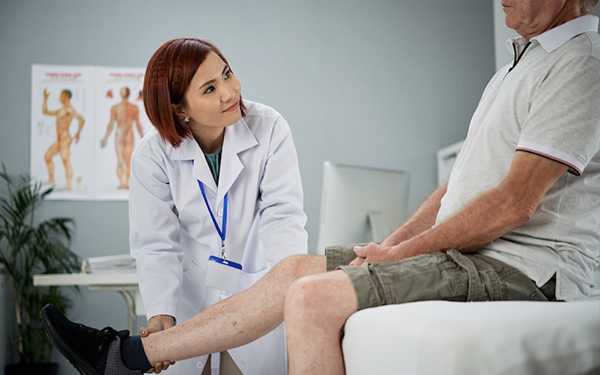Have you ever felt exhausted, nauseous or in pain during cancer therapy? Over half of patients rank side effects among the most challenging parts of treatment.
Cancer treatment often comes with unpleasant or even debilitating side effects. As advances are made, newer treatments sometimes have fewer side effects, but coping with them remains challenging for patients.
Dealing with the challenging side effects of cancer treatment should not mean suffering in silence. Whether you experience fatigue, pain or digestive issues, various practical self-care steps can improve your quality of life.
In this blog post, we’ll talk about six practical strategies for managing standard cancer treatment side effects so you can improve your quality of life while undergoing treatment.

Managing Cancer Treatment Side Effects
Cancer therapies like chemotherapy, radiation, surgery and more work to destroy dangerous cells. But they also damage some healthy ones, leading to problematic side effects. Instead of letting the symptoms overtake your daily functioning, equip yourself to minimize their impact.
1.Stay Properly Hydrated
Fatigue and headaches can result from inadequate fluid intake. Nausea or vomiting leads to dehydration, too.
Make a conscious effort to steadily sip water, hydrating sports drinks, bone broths and other liquids that appeal to you throughout your waking hours.
Proper hydration fuels your body’s essential functions for energy and healing. Ask your doctor if IV fluids could also help replenish you.
2.Try Relaxation Techniques
Stress and tension magnify discomforts like pain, nausea and sleep loss. Set aside 10-15 minutes daily to quiet your mind consciously.
Close your eyes and focus on taking slow, full breaths. You can also find a soothing melody or nature sounds and direct your attention there. Apps like Calm provide excellent guided meditations.
Yoga stretches also relax the body. Write in a gratitude journal, too. Such restorative breaks alleviate the effects of cancer treatment stresses.
3.Discuss Medications with Your Doctor
Various prescription medications can effectively minimize side effects like pain, nausea, digestive issues, depression and infection risks. Do not self-treat symptoms with over-the-counter drugs or tough it out.
The right medications for your needs can make all the difference. Track your symptoms and discuss them in detail with your cancer doctor and nurses.
Explain the limitations the symptoms cause and ask about prescription or alternative options. There are more choices available than most patients realize.
4.Check-in with Your Body
Treatment can be rigorous, so when your body feels taxed with low energy, pain or emotional stress, making self-care the priority aids healing on all levels.
Respect symptoms as essential messages to rest more. Adjust your schedule and activity levels based on your variable capacity from day to day.
Pushing relentlessly depletes your reserves, worsening discomforts over time. Treat yourself gently with plenty of soothing and rejuvenating breaks.

5.Access Counseling Services
Getting a serious diagnosis like cancer has profound mental, emotional and social impacts on the mind.
Anxiety, depression and concerns about the future affect over half of all patients. Yet many downplay mental health needs, which worsens quality of life.
Experts such as psychiatrists, nutritionists, social workers, and financial counsellors at cancer centres help manage every aspect of patient care beyond medical care.
Seek out such supportive services. Getting mental health therapy empowers overall well-being.
6.Bond with Other Cancer Patients
No one understands what you are going through, like those walking the same path. Cancer patient support groups exist locally and online, facilitating the sharing of stories, tips, and encouragement.
Hearing from survivors who faced similar struggles, emotions and side effects has a normalizing effect. Their wisdom and empathy comfort and inspire.
Plus, you can forge new friendships. Many report bonding with fellow patients as powerfully uplifting.
Conclusion
Cancer treatment side effects are expected, but there are many effective ways to prevent and treat symptoms. Work closely with your medical team, listen to your body, pay attention to self-care and don’t hesitate to ask questions.
Relief from side effects is within your reach. With the right combination of medical care, lifestyle changes and support, you can get through treatment with improved strength and comfort.
Frequently Asked Questions
Q. What are some common physical side effects of cancer treatment?
Ans: Some physical side effects frequently seen with therapy include fatigue, pain, nausea, vomiting, appetite changes, digestive issues, hair loss, skin issues and susceptibility to infection.
Q. When should I call the doctor about side effects?
Ans: Contact your cancer care team right away if you experience side effects like uncontrolled pain, repeated vomiting/diarrhoea lasting over 24 hours, bleeding, shortness of breath, and signs of infection like fever/chills and mouth sores that prevent drinking/eating.
Q. Can side effects appear even after finishing treatment?
Ans: Yes, specific side effects like fatigue, pain, insomnia, neuropathy and cognitive changes can persist for months or years after treatment ends.





